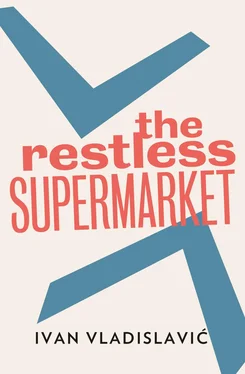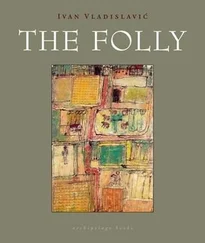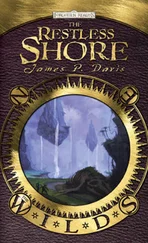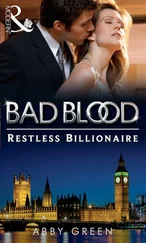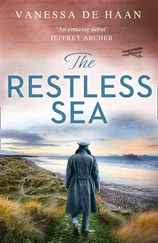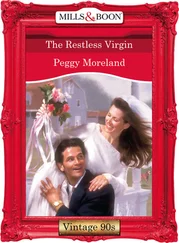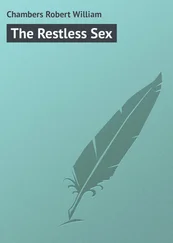Silence, for twenty paces, apart from the nutty crack of my heels on the pavement and the clammy whisper of her soles. And then she asked, with a touch of guile: ‘Aren’t there more important things to worry about than commas and full stops?’
‘Absolutely! The decline in the standard of proofreading is linked directly to the decline in standards everywhere else. Because nowhere is the maintenance of standards more important than in proofreading. Indeed, that’s all it is.’
More nodding and another silence, during which I realized with some discomfort that this was an approximation of the discussion I’d hoped to have with Spilkin earlier on. All mixed up with bits of my Introduction to ‘The Proofreader’s Derby’ and my keynote address to the inaugural championship. She could hardly be expected to hold her own on Horne Tooke or the Great Cham; yet I had no doubt that she would get the gist of it perfectly. Anyway, it had been so long since I’d had a chance to express myself fully on these questions, to argue my case, that there was no stopping me. The Highlander coming into view over her shoulder, aloft on his pedestal against the sky, a stone-hearted McAllister with the Transvaal Scottish clinging to his skirts, led me boldly on.
‘You mustn’t think that I don’t understand the appeal of the illicit, the urge to turn everything upside down. I was young myself once.’
I recalled the thrill of coming across a friend or colleague when I was proofreading the Book, and the temptation to slip in some secret message, a private joke we could laugh about afterwards, a nickname, say, or a mock title. A Miss Havenga came to mind, and a frivolous scheme I’d had for secreting a harmless endearment in the Book of 1976. How relieved I was today that I had conquered these impulses, I said, and never once compromised my professional principles.
While we were chatting, we had passed the College of Education and turned into Queens Street, and now our path sank down towards Empire Road. I was gearing myself for the uphill slog into Hillbrow when she proposed making a detour past the playground in Peter Roos Park. She wanted to play on the swings. The park was a mass of leafy shadow behind a corral fence of creosoted rails. Who could tell what desperadoes, dossing in the shrubbery, might be roused by a careless footstep, but an exhilarating recklessness had possessed me, and in any case, I needed to take the weight off my feet. We crossed the street, slipped between the trees on the traffic island, raising their jagged palms to menace us, and found our way through the undergrowth.
*
The playground looked like an obstacle course, all bristly ropes and tarred wattles, gigantic ladders made of logs and pits full of gravel. I sat down on a rough-hewn bench, a splintery conjunction of railway sleepers and split poles, and she skipped over to the swings. Soon she was coming and going, scooping up momentum with her feet and dragging it back with her calves, higher and higher, flinging herself against the sky, hurling herself into the future, stalling, plunging down again and back. It was enough to make me ill just watching her.
She took instruction well, I thought, but our discussion had been one-sided. She’d hardly got a word in edgeways. I should ask her some personal questions, encourage her to speak about herself. If I was going to cultivate her, that is … She came and went, came and went …
I thought about Henry Fowler and Major Byron F. Caws. In the second edition of the Concise , back in 1929, Fowler had acknowledged the quiet, unselfish efforts of Caws, an amateur in the best sense of the word, who for years had sent him packets of foolscap devoted to perfecting the dictionary — ‘all this for love of the language not as a philological playground, but as the medium of exchange and bond of union among the English-speakers of the world’. How could one square this admirable point of view with the modern taste for ‘fun’? What would Fowler have made of my idea for lexical gymnastics? Would he grant that it was closer to healthy exercise than the childish whiling away of time associated with the playground?
Of course, gymnastics and fartlek were two different things. Even the simpler gymnastic moves — the handspring or onions, the backflip or graaff — took years to master. Whereas one could teach the fundamentals of fartlek in a morning. Then again, one did not enter into lexical training for its own sake, but to build up strength and skill for proofreading itself. Fartlek gave you stamina; gymnastics gave you speed. It was necessary to put that across to a beginner.
I sat musing on such questions until she tired of the swings and came running back. The watermelon smell, sweetened by exertion and the foretaste of dawn, was vividly pink against the drab and dusty green of eucalyptus. In its cheery atmosphere, we set out again along Empire Road.
*
Up Hospital Extension, she insisted on walking in the middle of the road, skipping along the dotted line as if she meant to leave her mark there. I kept prudently to the pavement.
‘What if a car comes?’
‘At four in the morning?’
‘It’s possible.’
‘Just whistle.’
I told her how I had nearly been run down by a delivery van from the Atlas Bakery. And then, in the middle of my story, a vehicle did come, an ambulance like the one we had ridden in, appearing over the rise shrieking and flailing, and bearing down on her so quickly that my heart stood still. She scampered out of the way with a laugh. All the same, the episode brought the interior of the ambulance and Intensive Care back into our minds, and put a damper on things.
‘It’s important to be able to whistle,’ she said.
I kept my reservations to myself, and said, ‘I heard you whistling earlier, when Hunky Dory was experimenting on us. It was very loud.’
‘Thank you.’
‘I’ve never been able to whistle myself. Even as a boy, when I might have found the knack useful for calling dogs and so on. I think it’s the dental make-up. You’ve either got it or you haven’t.’
‘Anyone can learn.’ She hooked her forefingers — not the little ones, mind you, which would have been conventional and marginally more ladylike, but the indices, right up to the second joint — into the corners of her mouth and let out an ear-splitting example.
*
A dawn like a prison blanket lay over the city as we crested the hill. The brisk pace we had sustained throughout the climb suddenly faltered, and we were seized by an odd sort of aimlessness. We should have turned left, towards home, but instead we followed the curve of the brick wall to the right into Kotze Street.
‘This is the big chookie,’ she gestured towards the Fort. ‘My dad was in here once. For discharging a firearm in a built-up area.’
‘Title deeds department,’ I said in turn, pointing towards the Civic Centre up ahead. ‘Friend of mine worked there, name of Banes. Records of ownership and sales. A wealth of material.’
We strolled on to the end of the block. The aimlessness intensified. We should have turned back or crossed over the street. Instead, we turned left and strolled downhill again. We gazed at the façade of the Institute of Immunology. We went on to the statue of miners wielding the water-drill. She thought they looked like rugby players or policemen, the bruisers she saw working out at Sam Busa’s Health and Fitness World. We gazed south along Rissik Street, over the railway lines, to the grand towers of the city centre. Then at an unspoken signal, we toiled back up to the front of the Civic Theatre.
For the first time in months, the terrace came into my mind. Had they put back the flagstones now that the place was open again? I led the way to the side of the building — and there they were. Shirlaine had never seen anything like it: I had to explain how it worked. The inscriptions were illegible in the gloom, and so she waved the flame of her cigarette lighter over the flags. We went down on our hands and knees and moved from stone to stone. The letters scratched into the cement were puckered at the edges like scar tissue, and there were drifts of yellow sand in the hollows where hands and feet had been pressed.
Читать дальше
